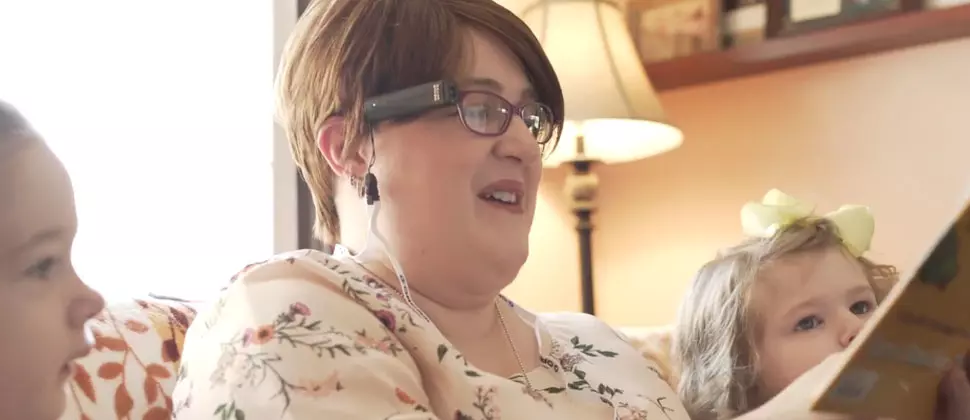Valuable Tips from Blind Parents Who Have Successfully Raised Children
2019-09-01 | By Orcam Staff

Blind parents have a pretty tough job. The care of an infant usually requires full attention and all of the senses. The baby needs regular food, diapers need to be changed, lullabies sung and doctor’s visits organized. The job already challenges parents with all their senses. Try to imagine doing all these tasks as a blind person. Here are some tips and alternative techniques from visually impaired parents who have passed the test of parenting with flying colors.
Be patient:
Being blind often means that things take a little longer than a sighted person. Bathing, changing diapers and preparing food are some examples of tasks that require a bit more patience for the non-sighted. Many blind parents first had to realize that a slow procedure is not a big deal. Once you deal with the tasks that take a little longer, you get used to it, and the time factor becomes less significant.
Label important things in Braille:
Whether it’s different medications, glasses with baby food or toys – it’s always helpful to know what you are giving your child. The clear inscription in braille right from the purchase makes life easier. It may also be worthwhile writing down complex Braille instructions for important things, such as medicine. This way, you can act independently and responsibly.
Use technical tools like OrCam MyEye 2 to read to your children:

Several studies have shown significant benefits of early reading for the development of children. There are alternative techniques that allow visually impaired and blind parents to read to their children. Holly Bonner, blogger and blind mother of two young daughters, uses the small high-tech camera OrCam MyEye 2 to read children’s books to her daughters. For this, the small device is simply attached to a pair of glasses by a magnet and then recognizes the written text.
Trust in your other senses:
Blind parents recommend using touch as an alternative sense. By using your sense of touch, you can tell what your children are holding, what they are eating and what mischief they are causing. Another “trick” that many blind parents utilize, is attaching small bells on the shoes of their children. This allows you to understand the movements and the whereabouts of your children.
Accept your blindness and do not worry:
Many blind parents blame themselves for not being able to do as much as sighted parents. They want their children to have a “normal childhood”. But the kids will know anyways that you are different. As Holly Bonner says, “Yes, we may live in darkness, but we illuminate their world with our presence. Our children believe we are the most amazing and beautiful creatures that grace this earth. That alone should serve as a daily reminder of how special you are to your children.”
Do not be afraid to share responsibility:
Blind parents should realize that they can take a well-earned break with the help of their spouse, grandparents, aunts, uncles, older children and nannies. It is not embarrassing to ask for help. The blind often understand this better than most sighted parents. By turning to a support network that can help you with feeding, homework, or just playing around, you can create free time for work, leisure, or hobbies.
Despite all the skepticism that sometimes comes from the outside, parenting is about the person you are, not the disability you have. For more information on blind parenting, visit your local blind association or Holly Bonner’s blog ( https://blindmotherhood.com/ ).
In the video, a blind father talks about his experiences (English language)



